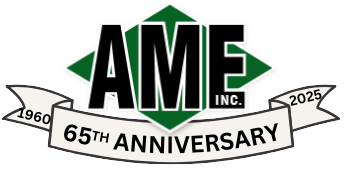You know the saying: an ounce of prevention is worth a pound of cure. When planning your plant relocation, here are three pieces of information to gather sooner rather than later. All three are important items you’ll want to discuss with your plant relocation specialist.

- Declared values of all equipment. This information is necessary for insurance purposes, border crossings (both interstate and international—think taxes, tariffs, duties), and legal reasons. Your accounting department should be able to help you assemble the necessary paperwork.By the way, if you’re crossing borders, you should choose a plant relocation specialist who has a good working relationship with a reputable customs broker. Why? Well, a good customs broker can help expedite the process, particularly when dealing with equipment that’s been purchased at auction or is brand new from an overseas manufacturer. You’ll hear the phrase “countries of origin” a lot—that’s important information that everyone needs to know (and you’ll need it in the paperwork). A seasoned broker can help navigate this (sometimes unwieldy) process.
- UL listings/requirements for all equipment. Think about the location you’re moving your plant to. Make sure you investigate what UL inspections/requirements the local municipality mandates. Does all your equipment pass muster.Unfortunately, we’ve seen situations where companies have equipment going from one country to another and that equipment did not meet local UL electrical standards, resulting in downed production and lost revenue, not to mention the money needed to bring the machine up to code.Better to be prepared before you make the move so you know what you’re facing OR so you can have a contingency plan in place.
- The dimensions and weight of all machinery/components. This seems straightforward, but your plant relocation specialist needs precise numbers, not estimates. Remember, this information will determine HOW we transport your equipment. Different equipment will require different methods—and sometimes a combination of methods.For example, for one plant relocation we did, we had several pieces that were too big by weight and too big by dimension for us to cross the bridges between the US and Canada, so we ended up having to float the pieces down the river and then load them onto a rail car.
Remember, the sooner you bring in a plant relocation specialist, the better. A good plant relocation specialist will make sure you cover all these areas thoroughly.
For further insight on plant relocations, check out these articles:
- Why Plant Relocations Are More About Project Management Than Heavy Machines
- How to Objectively Evaluate Equipment Installation and Relocation Agreements
- How to Hire Affordable Plant and Equipment Relocation Experts
- 4 Avoidable Mistakes that Derail Factory Relocation
And, as always, if you need help relocating your plant or factory, we’d love to bid on the job. Request a quote for your plant relocation here.

